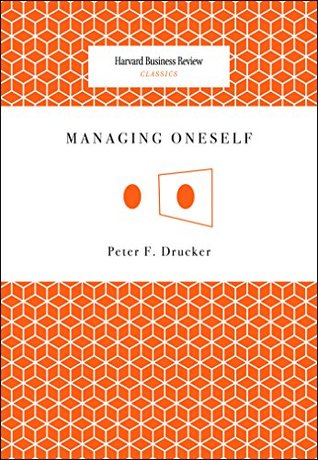More on this book
Community
Kindle Notes & Highlights
Read between
August 9 - August 11, 2025
History’s great achievers—a Napoléon, a da Vinci, a Mozart—have always managed themselves. That, in large measure, is what makes them great achievers.
We need to know our strengths in order to know where we belong.
The only way to discover your strengths is through feedback analysis. Whenever you make a key decision or take a key action, write down what you expect will happen. Nine or 12 months later, compare the actual results with your expectations.
First and foremost, concentrate on your strengths. Put yourself where your strengths can produce results.
discover where your intellectual arrogance is causing disabling ignorance and overcome it.
Go to work on acquiring the skills and knowledge you need to fully realize your strengths.
One should waste as little effort as possible on improving areas of low competence. It takes far more energy and work to improve from incompetence to mediocrity than it takes to improve from first-rate performance to excellence.
Am I a reader or a listener? and How do I learn? are the first questions to ask. But they are by no means the only ones. To manage yourself effectively, you also have to ask, Do I work well with people, or am I a loner? And if you do work well with people, you then must ask, In what relationship?
What are my strengths? How do I perform? and, What are my values? And then they can and should decide where they belong.
Successful careers are not planned. They develop when people are prepared for opportunities because they know their strengths, their method of work, and their values. Knowing where one belongs can transform an ordinary person—hardworking and competent but otherwise mediocre—into an outstanding performer.
A plan can usually cover no more than 18 months and still be reasonably clear and specific. So the question in most cases should be, Where and how can I achieve results that will make a difference within the next year and a half ?
Very few people work by themselves and achieve results by themselves—a few great artists, a few great scientists, a few great athletes.
The first is to accept the fact that other people are as much individuals as you yourself are. They perversely insist on behaving like human beings. This means that they too have their strengths; they too have their ways of getting things done; they too have their values. To be effective, therefore, you have to know the strengths, the performance modes, and the values of your coworkers.
The second part of relationship responsibility is taking responsibility for communication.
Organizations are no longer built on force but on trust. The existence of trust between people does not necessarily mean that they like one another. It means that they understand one another.


